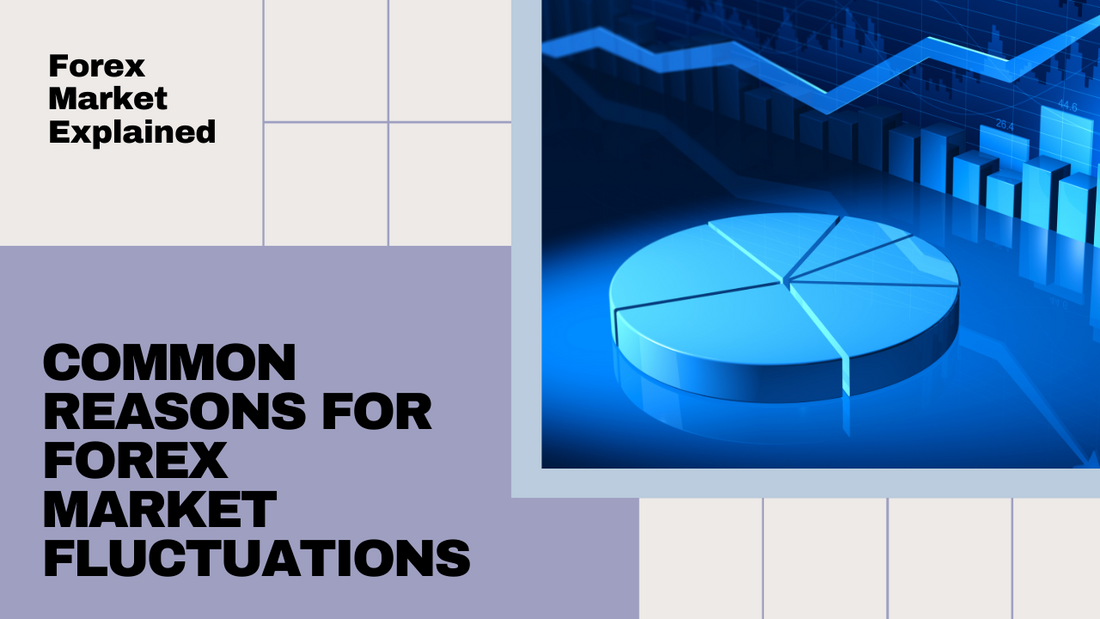
Understanding Forex Market Fluctuations
Share
The foreign exchange market, also known as the forex market, is the largest and most liquid financial market in the world. It operates 24 hours a day, five days a week, and involves the buying and selling of currencies. Forex market fluctuations refer to the changes in currency exchange rates, which can have a significant impact on international trade, investments, and the global economy. In this blog post, we will explore the factors that influence forex market fluctuations and how they can be understood.
What causes forex market fluctuations?
Forex market fluctuations are primarily driven by supply and demand dynamics. The value of a currency is determined by a variety of factors, including interest rates, economic indicators, geopolitical events, and market sentiment. When the demand for a currency exceeds its supply, its value tends to increase. Conversely, when the supply of a currency exceeds demand, its value tends to decrease.
How do interest rates affect forex market fluctuations?
Interest rates play a crucial role in forex market fluctuations. Central banks, such as the Federal Reserve in the United States or the European Central Bank, have the power to influence interest rates. When a central bank raises interest rates, it attracts foreign investors seeking higher returns on their investments. This increased demand for the currency leads to an appreciation in its value. Conversely, when a central bank lowers interest rates, it discourages foreign investors, leading to a depreciation in the currency's value.
What role do economic indicators play in forex market fluctuations?
Economic indicators, such as GDP growth, inflation rates, and employment data, provide valuable insights into the health of an economy. Positive economic indicators, such as strong GDP growth or low unemployment rates, tend to attract foreign investors and increase the demand for a currency. This increased demand leads to an appreciation in the currency's value. On the other hand, negative economic indicators can have the opposite effect, causing the currency to depreciate.
How do geopolitical events impact forex market fluctuations?
Geopolitical events, such as elections, political instability, or trade disputes, can have a significant impact on forex market fluctuations. Uncertainty surrounding these events can lead to increased volatility in the currency markets. For example, if a country is facing political turmoil, investors may lose confidence in its economy and sell off its currency, causing its value to decline. On the other hand, positive geopolitical developments, such as the resolution of a trade dispute, can boost investor confidence and lead to an appreciation in the currency's value.
How can forex market fluctuations be understood?
Understanding forex market fluctuations requires a combination of fundamental analysis and technical analysis. Fundamental analysis involves analyzing economic indicators, central bank policies, and geopolitical events to assess the underlying factors driving currency movements. Technical analysis, on the other hand, involves studying historical price patterns and using mathematical indicators to identify trends and potential trading opportunities.
Traders and investors can also stay informed about forex market fluctuations by following financial news, reading research reports, and utilizing trading platforms that provide real-time market data and analysis. By staying informed and understanding the factors that influence forex market fluctuations, traders can make more informed trading decisions and potentially profit from currency movements.
In conclusion, forex market fluctuations are driven by supply and demand dynamics, influenced by factors such as interest rates, economic indicators, and geopolitical events. Understanding these factors and staying informed about market developments can help traders and investors navigate the forex market and potentially capitalize on currency movements.



